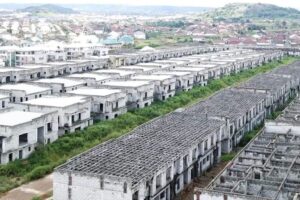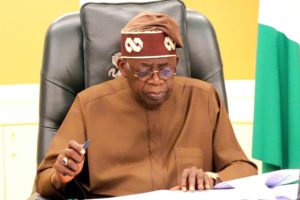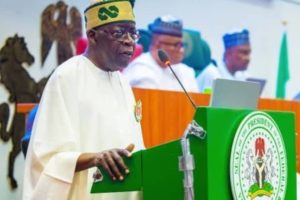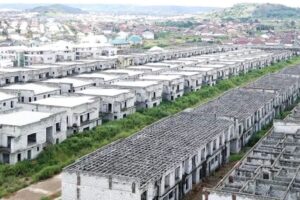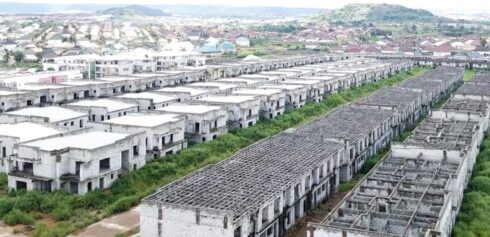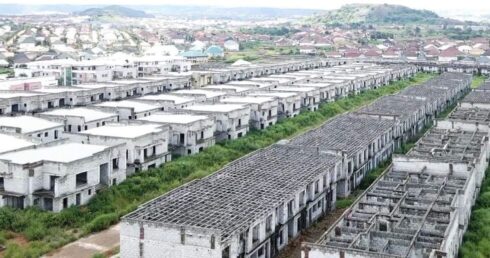In a groundbreaking move, the Economic and Financial Crimes Commission (EFCC) has announced its largest-ever asset recovery: an estate measuring 150,500 square meters in the Lokogoma District of Abuja, comprising 753 duplexes and other residential apartments. The property, located on Plot 109, Cadastral Zone C09, was forfeited to the Federal Government following a ruling by Justice Jude Onwuegbuzie on Monday, December 2, 2024.
This historic recovery underscores the EFCC’s relentless commitment to combating corruption. In a statement released on its X handle, the commission hailed the forfeiture as a critical win in its mission to deprive corrupt individuals of the proceeds of their illicit activities. The EFCC relied on Section 17 of the Advance Fee Fraud and Other Fraud Related Offences Act No. 14 of 2006 and Section 44 (2)(B) of Nigeria’s 1999 Constitution to secure the forfeiture.
The Court Ruling and Its Implications
Justice Onwuegbuzie, in his judgment, emphasized that the ex-government official had failed to provide justification for retaining ownership of the estate, which was suspected to have been acquired through fraudulent activities. The court ruled, “The property is hereby finally forfeited to the Federal Government.”
While the respondent remains under investigation, the EFCC stressed that the forfeiture aligns with its strategy to curb financial crimes by stripping suspects of ill-gotten assets. According to the EFCC, asset recovery serves as a deterrent to corruption and ensures that public resources are not squandered by unscrupulous individuals.
EFCC’s Focus on Asset Recovery
EFCC Chairman Ola Olukoyede highlighted the critical role of asset recovery in the agency’s fight against corruption. Addressing members of the House of Representatives Committee on Anti-Corruption, he explained that asset tracing is now integral to financial crimes investigations.
“To recover one billion naira is war,” Olukoyede remarked. He noted that depriving suspects of access to proceeds of crime weakens their ability to resist investigations and enables effective prosecution. The chairman reiterated the importance of swift asset tracing, adding, “The moment we begin an investigation, we begin asset tracing. This proactive approach has significantly bolstered our recovery efforts.”
Significance of the Forfeiture for Nigeria
This monumental recovery reflects the EFCC’s dedication to upholding President Bola Ahmed Tinubu’s anti-corruption mandate. By reclaiming a property of such magnitude, the commission has set a new standard for its operations and reinforced public trust in its mission.
The estate’s forfeiture also highlights the EFCC’s adherence to the procedures outlined in its Establishment Act, which mandates the tracing, attachment, and forfeiture of assets linked to economic crimes. As Nigeria intensifies its fight against corruption, this achievement serves as a beacon of hope for accountability and the restoration of public trust in governance.
The recovery not only demonstrates the EFCC’s operational efficiency but also sends a strong message to perpetrators of financial crimes that their actions will not go unpunished. :: Needs for Collaboration between EFCC And the Public
However, experts emphasize the need for greater public collaboration to enhance the EFCC’s effectiveness.
A synergy between the agency and citizens would bolster information sharing and foster a culture of accountability. Such partnerships could amplify the impact of anti-corruption initiatives and pave the way for sustainable governance reforms.
The recovery of the Lokogoma estate marks a significant victory in the fight against corruption, showcasing the EFCC’s resolve and the critical role of asset recovery in deterring financial crimes. This milestone sends a clear message to public officials: the days of enjoying illicit wealth are numbered
Table of Contents
Discover more from OGM News NG
Subscribe to get the latest posts sent to your email.

